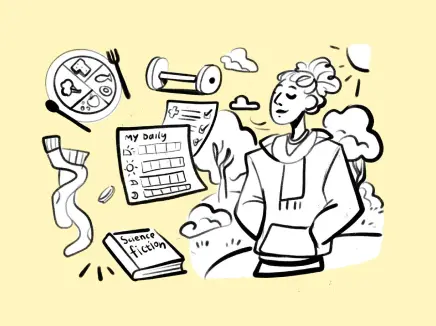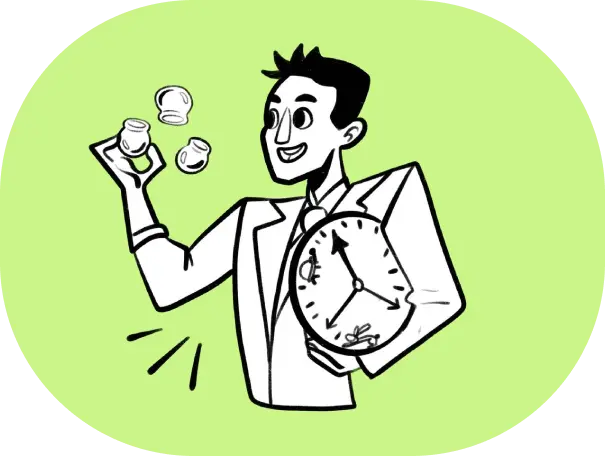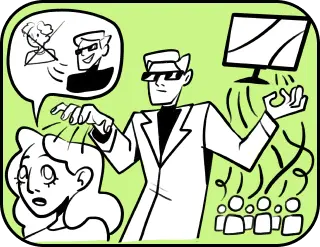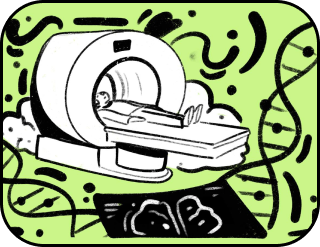How to heal wounds using time
In a technology-filled world, illness can strike anyone.
Scientists studying immortality seldom fall ill, stoically enduring discomfort for the sake of knowledge.
Couriers delivering lab mice prefer frequent but quick illnesses.
Lab technicians strive to avoid illness, but if it happens, they discreetly endure it within designated periods.
Ordinary people, benefiting from all inventions, also fall ill, calculating insurance premiums mentally and cursing hospital food.
Some choose traditional methods for recovery, while others opt for unconventional technological solutions.
The best usual-life is to take care of yourself. If avoiding medication fails, then take the necessary medicine. Unpleasant conditions will pass, and the technological world will surely delight you with new inventions. Take care of yourself!

Researchers from Harvard University observed an interesting connection between personality and healing.
They identified life situations where time seems unbearably long:
- The time from food delivery order to the courier ringing your doorbell feels eternal.
- Waiting for a college acceptance letter stretches endlessly.
- Uncomfortable shoes on the way from a taxi to a restaurant feel like an eternity.
- Tedious movies and books seem to last forever.
- Waiting for a new album, device, or game release typically feels like an eternity.
- Illness time feels endless.
Conversely, situations where time flies include:
- Random encounters pass quickly.
- Vacations fly by.
- Engaging conversations speed by.
- The journey home passes in a blink.
- A day to complete everything rushes by.
- The time to pay taxes goes by quickly.
- Boarding a plane for an exciting trip also feels swift.
- Exciting journeys pass quickly.
Scientists concluded that the human brain cannot perceive time but gives us a “sense” of it. Based on this, they hypothesized that by “tricking” the human brain, it could control time and heal wounds.
For their experiment, researchers used standard medical cups that leave distinctive circular marks on the skin. The containers were essential for simulating “wounds” that would miraculously heal over a designated period, allowing for a vivid and awe-inspiring observation of the healing process throughout the experiment. Would the cup marks heal faster if the perceived time for participants passed more quickly or more slowly?
In the experiment, participants were informed that medical cups would be applied the next day. They were asked to perform exercises at home simulating key elements of the procedure, preparing their bodies for a specific time frame.
On the day of the experiment, researchers divided participants into groups. In one group, experimenters intentionally prolonged the procedure time, claiming less time had passed. In another group, they shortened the time and informed participants that much more time had passed.
During the experiment, researchers observed faster healing when participants believed more time had passed. In essence, when participants thought 20 minutes had passed instead of 10, marks from the cups simulating “wounds” disappeared more quickly.
The authors argue that these findings align with the mind-body unity theory, suggesting that the mind and body interact simultaneously. If one learns to “trick” the brain correctly, it can manage any unpleasant state.
Stay healthy, that’s enough technology for today.

The double-slit paradox awaits you! Learn from particles how to act mysteriously and unpredictably.
Thank you!




